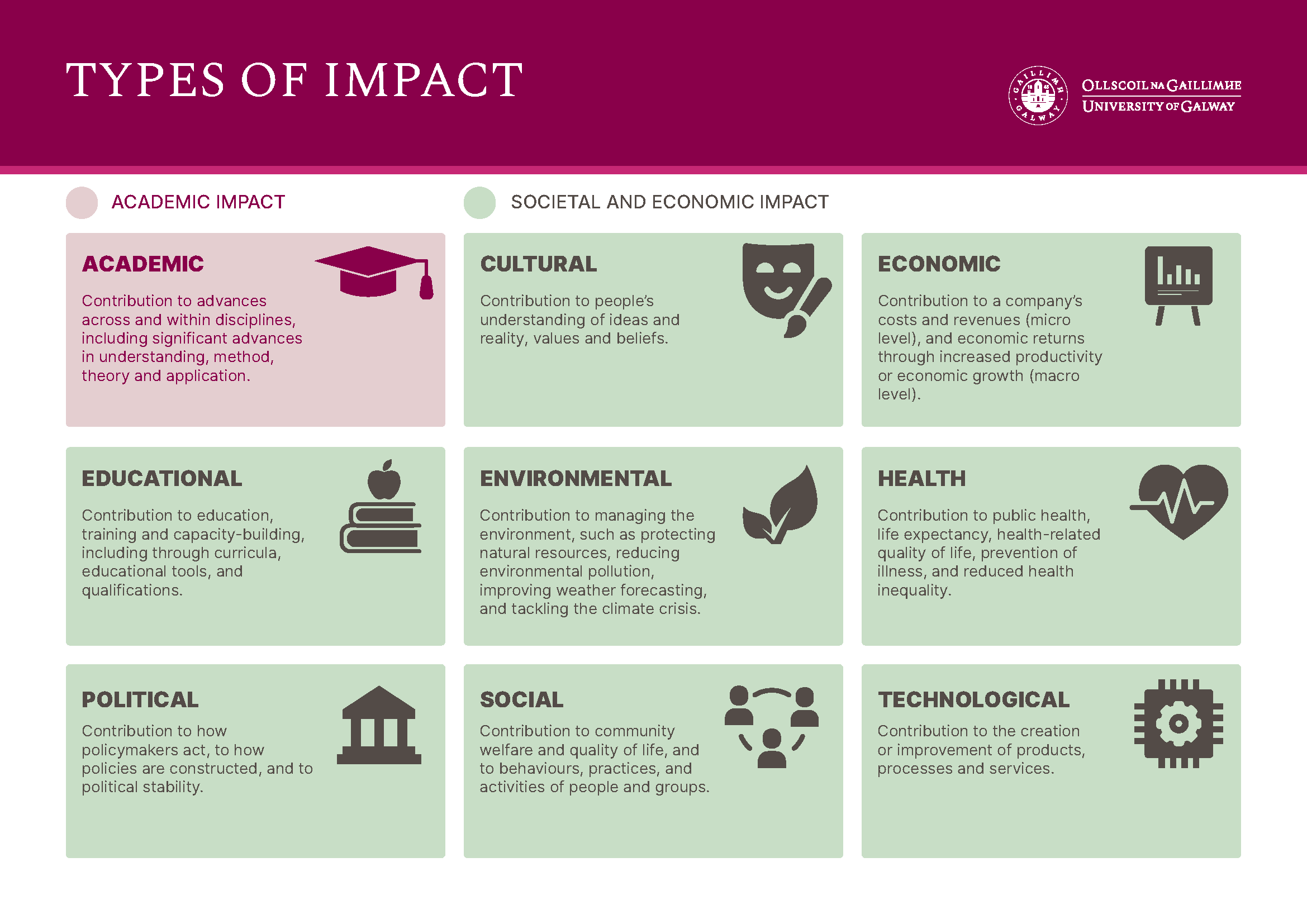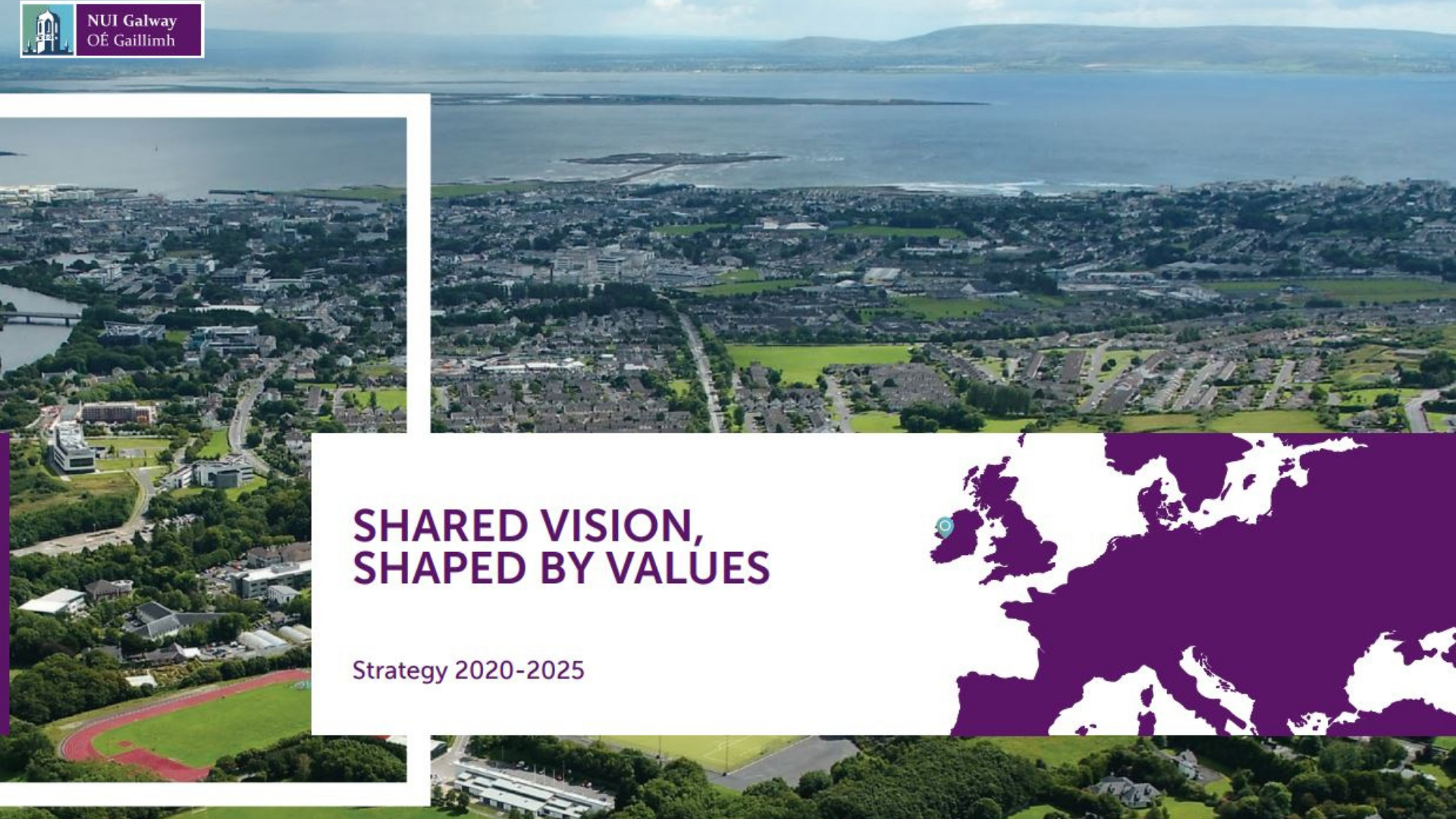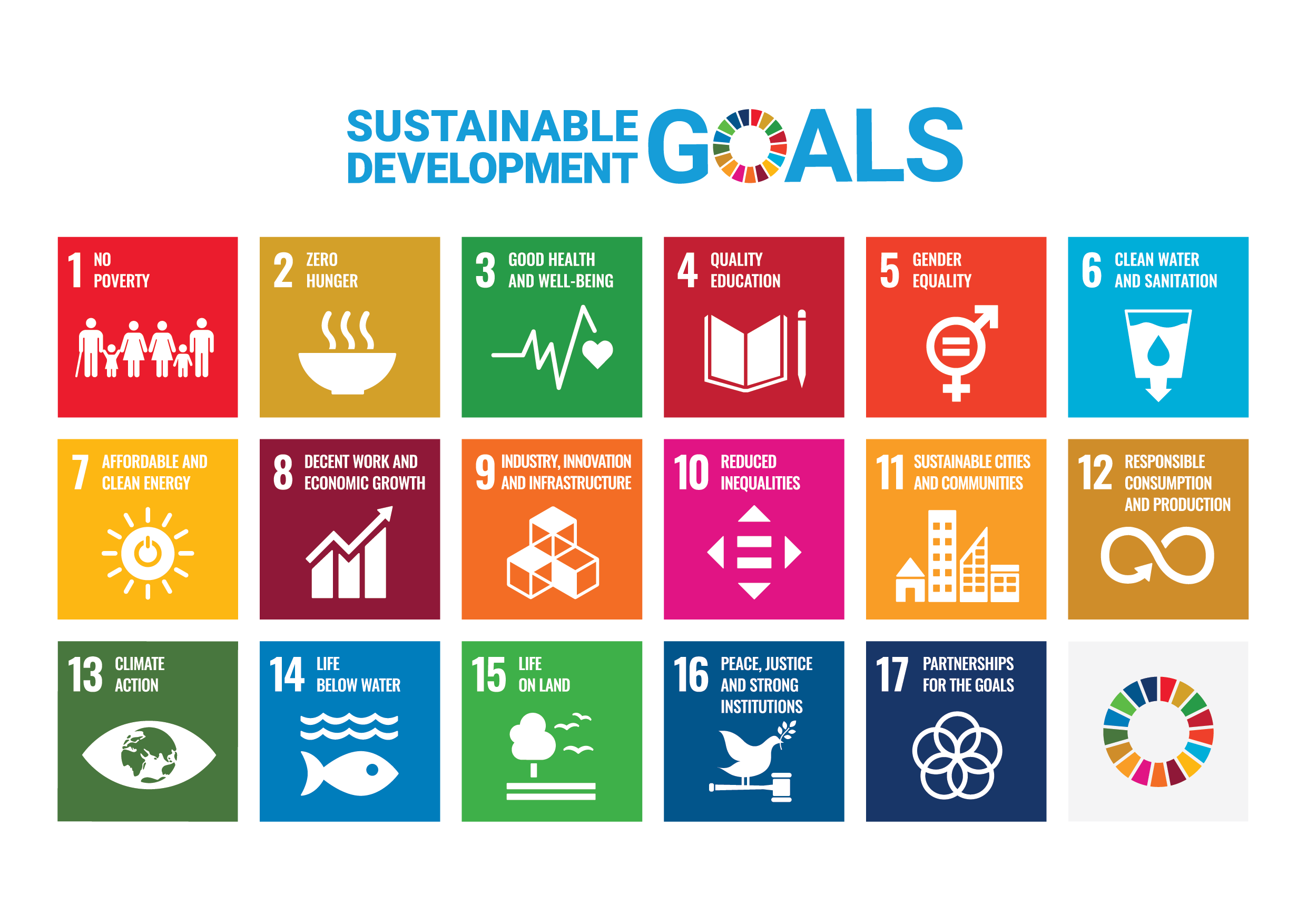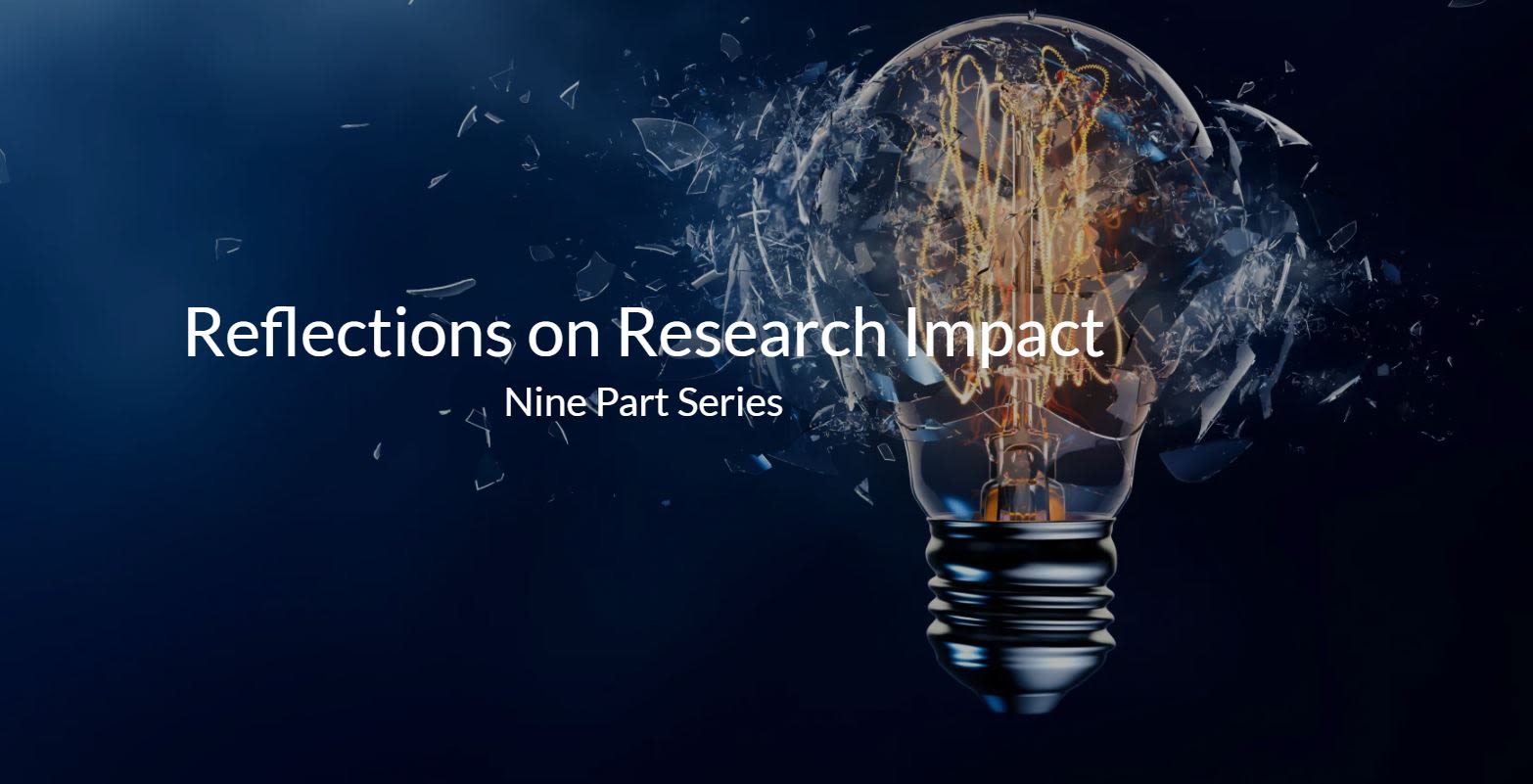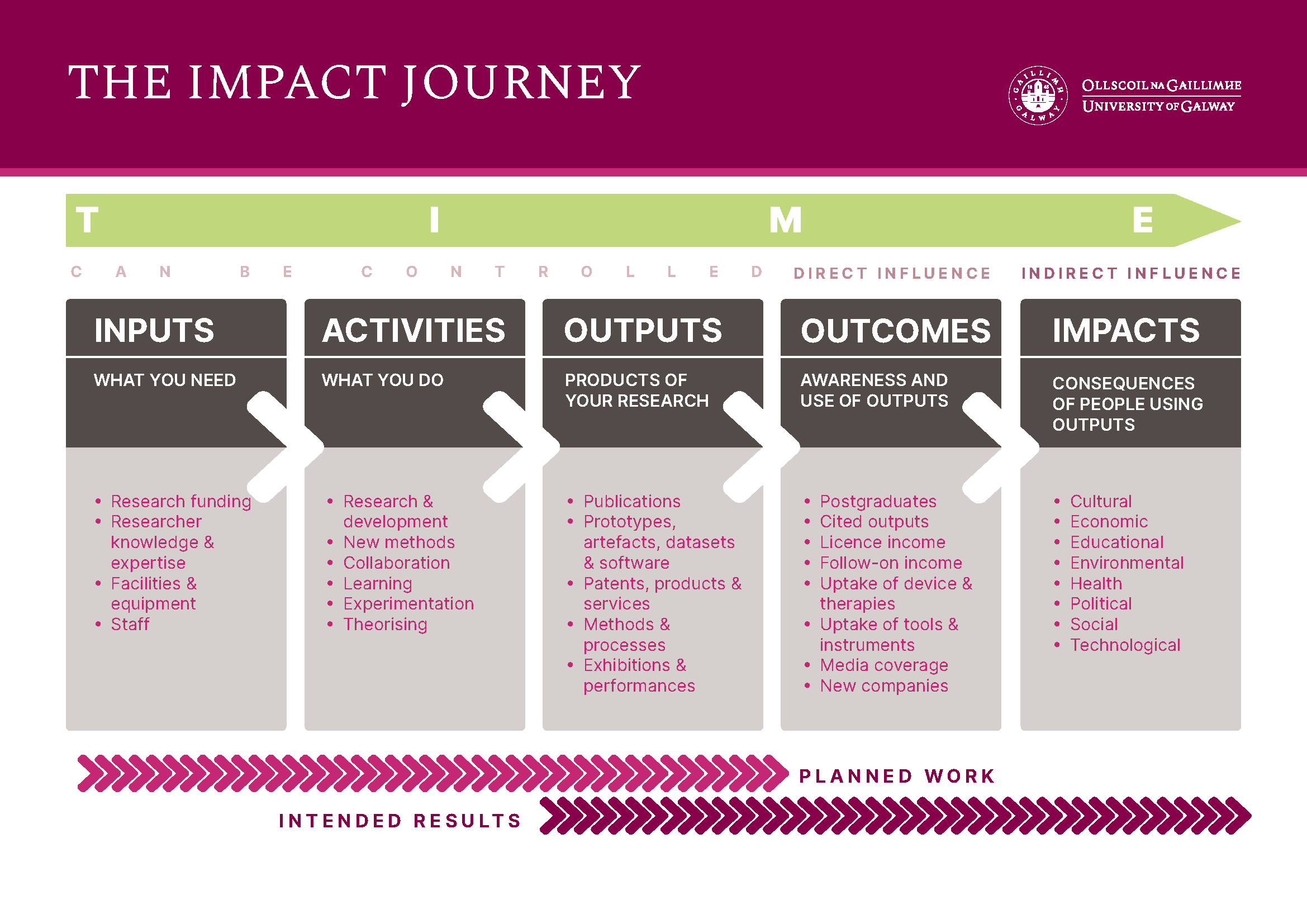What is Research Impact?

Defining Research Impact
Research impact has many definitions; as per the European Commission, it entails "A change or a benefit to the economy, society, culture, public policy or services, health, the environment or quality of life". In essence, it can be summed up in one word: benefit - signifying how our research benefits society and the economy.
Here, we make a distinction between "academic impact", which pertains to the contribution of research knowledge within a specific field of study in academia, and "non-academic impact", which extends beyond academia.
Academic impact refers to the demonstrable contribution contribution that excellent research makes to academic advances encompassing advancements in understanding, methodology, theory, and practical application within and across disciplines.
Societal and economic impact refers to the demonstrable contribution that excellent research makes to society and the economy, offering benefits to individuals, organisations and nations.
Keep asking who benefits and how, and you will find the impact. People regularly ask me when does the 'pathway to impact' stop and the impact begin? The answer is that impact starts when you see benefits.
Defined broadly, impact is rich and varied and not easily quantified. These impacts can manifest immediately or over the long term, often stemming from accumulated knowledge rather than a single research finding. Our classification system, outlined below, aims to reflect this rich variety. It is based on a taxonomy developed by the European Science Foundation. It is based on a taxonomy developed by the European Science Foundation. By categorising impacts in this way, you can explore the full breadth of potential impacts associated with your research.
Despite the broad nature of impact, the University has articulated clear ambitions in our new Strategy - Shared Vision, Shaped by Values 2020-2025.
We will sharpen the focus of our teaching, research and innovation using the UN Sustainable Development Goals as a blueprint to achieve a better and more sustainable future. Engaging with our partners locally, nationally and worldwide, we will invite ambition in research that underpins the following areas:
- Enhancing policy and society
- Enriching creativity and culture
- Improving health and wellbeing
- Realising potential through data and enabling technologies
- Sustaining our planet and people
Reflections on Research Impact
University of Galway has produced nine short training videos for this toolkit, designed to provide a quick and easily understandable introduction to research impact. These videos cover topics such as explaining the concept of research impact, approaches to it, and key considerations involved. You can access the nine-part video series by visiting the link below.
The Impact Journey
Researchers often misconstrue the concept of impact, mistakenly viewing the outcomes of their research projects or studies as the impact itself. However, true impact arises from the utilisation of knowledge or dissemination of outputs from the study, leading to tangible change.
The impact journey illustrates how research can trigger societal and academic impacts, charting the evolution of research over time and identifying five distinct stages along the path to impact:
- Inputs: What researchers need.
- Activities: What researchers do.
- Outputs: Products generated by the research.
- Outcomes: Individuals becoming aware of and utilising these products, typically occurring in the short- to medium-term.
- Impacts: Societal changes resulting from outputs and outcomes, typically realised in the longer-term.
The diagram below illustrates this pathway, providing examples under each of the five stages:
What Impact Is Made Of?
Impact consists of two key parts: reach and significance. While the best impact involves both, one or the other can still be meaningful.
Reach pertains to the extent, spread, breadth, and diversity of the beneficiaries affected by the impact. It focuses on how widespread the impact is.
Consider how you can broaden, replicate, and scale up your impact to reach a wider audience.
Significance, on the other hand, refers to the importance or value of the impact to each beneficiary. It measures how the impact has enhanced, influenced, informed, or transformed the performance of policies, practices, products, services, culture, understanding, awareness, or well-being of the beneficiaries.
Reflect on how you can elevate the significance and meaningfulness of your impact for the individuals you aim to benefit from your work.
Put simply, if my research saves someone’s life, I’ve made a significant impact; if my research saves millions of people’s lives, the impact is no more significant, but now it has reach as well.
In summary
Impact is the result of research causing a change in the world.
For example, this could be:
- Enhancing policy and society
- Enriching creativity and culture
- Improving health and wellbeing
- Realising potential through data and enabling technologies
- Sustaining our planet and people
Impact is not the underlying activities or pathways that aim to effect these changes. However, these elements often play a crucial role in the impact journey, and it's still important to consider and discuss them. Examples include:
- Publishing academic papers
- Discussing one's research in the media
- Coordinating public engagement activities
- Generating interest in research via social media
- Presenting at conferences
Training opportunities
At the University of Galway, we provide a range of workshops and seminars focused on research impact:
- 'Introduction to Research Impact' by Saskia Walcott, Director of Walcott Communications. Access the recorded workshop here. Saskia empowers researchers to develop the skills, tools, techniques, and mindset required to establish crucial relationships and opportunities, fostering meaningful social and economic impact from research.
- Our Research Impact Seminar Series offers a platform to learn from national and international research impact experts who will share and discuss best practices in impact-related topics from around the world.
To discover more about additional workshops and seminars, please visit our SharePoint site.
Click here to proceed to the Plan section
Explore our toolkit now to learn how to Plan, Capture, Communicate and Monitor your impact.
To enhance this toolkit, please contribute by sharing tools and other valuable resources you find useful. Kindly email Áine Mhic Thaidhg, Research Impact Officer.
The development of this toolkit was led by UCD, with funding from the HEA, and members of a Research Impact Working Group. Further information available here.

